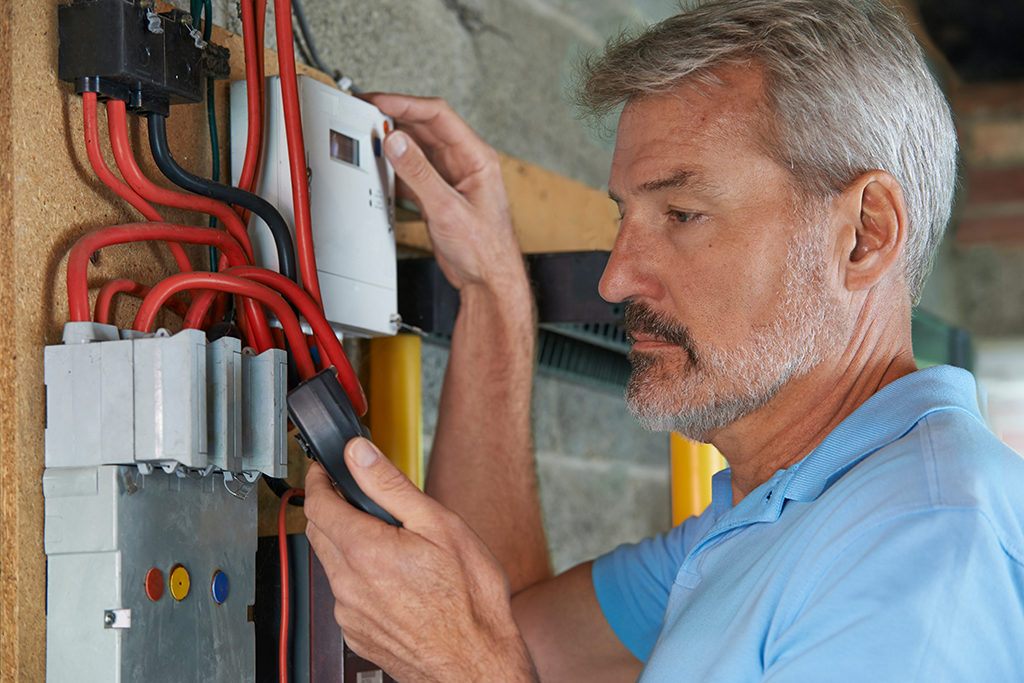
What Your Emergency Electrician Wants You to Know | Shallotte, NC
Photo By SpeedKingz at Shutterstock
Nearly every home around the world uses electricity to some degree. Sooner or later, something will go wrong with your electrical system and you will be in need of an emergency electrician. No matter what kind of electric work you are needing done to your place of residence, there are some things that your electrician wants you to know.
Do Not Ignore the Warning Signs: The most important thing that your electrician wants you to know is to never, ever ignore the warning signs that something is wrong with your electrical system. It can be a popping noise from your outlet, a light switch that turns hot when it is used, or a breaker that will not reset. When you have an electrical problem, it is necessary that you take it very seriously and contact an emergency electrician.
Thankfully, the majority of electrical problems can be solved in a timely manner as long as they do not fester and become a bigger problem over time.
Overhead Power Lines are Live: Overhead lines typically do not have insulation in them. When you see a bird or a squirrel on them, the only reason that they survive crossing them is that they are not completing a circle by touching the ground or providing the current with an easier path than following the cable itself.
The majority of power lines that are located outside that you see are weather coated at most, with no insulation in them other than spacers at utility poles. Due to the fact that they are very high above the ground, there are no problems unless the lines fall or worker touches them while they are trimming a tree. While lines that can be touched from a rooftop or tree do have insulation in them, the insulation fades away over time and will eventually crumble and leave bare wires exposed. It is essential to approach all overhead lines with full knowledge of what they are-potentially fatal objects that are best left in the hands of a licensed electrician including an emergency electrician or a utility worker.
Low Voltage Does Not Mean It Is Not Dangerous: Low voltage is not as dangerous as working on your electrical breaker box in your home in Shallotte, NC. Electricians want you to know that you still need to use caution when you come in contact with something is low voltage. Treat low-voltage wiring as though it were standard, and you will pick up good practices to incorporate when you come in contact with high voltage wiring. Also, your electrician (including your emergency electrician) will be quick to remind you that it is not the voltage that is dangerous, but, instead, it is the current. At times, a low-voltage wiring can draw a current that is above the level that is considered safe.
A more common hazard that comes with working with low-voltage wiring involves receiving a mild shock that is a literal shock to the person that is installing a wire and causes them to fall off a ladder or step stool. Lastly, it is very important to know how important it is to secure connections. A spark that comes from a low-voltage connection that is not secured properly will ignite combustible materials. If you do the job exactly as it should be done and not doing something as foolish storing oily rags next to a low-voltage device.
It Is Always a Bad Idea to Tape or Hold Down a Circuit Breaker: If you ask any electrician, including an emergency electrician in Shallotte, NC, they will tell you that the only reason a circuit breaker works is that they break the circuit. When a breaker continues to pop, your emergency electrician needs to locate the issue and then fix it. If you hold a breaker down with tape, then the dangerous issues will not only continue, you will be setting yourself up for a major problem. Forcing the breaker to keep contact is a disastrous idea and ought to be avoided no matter what.
Tamper-Resistant Receptacles are a Good Idea: Tamper-resistant receptacles are designed to stop a child from putting things in them (like a paper clip). They can safely be used in all places inside and outside. They are a really great invention. Therefore, it is a good idea to put them in use. These receptacles can prevent you from having to call your emergency electrician in Shallotte, NC for help.
Outdoor Receptacle Covers are Important: When it comes to outdoor receptacles, the flat covers only protect it when it is not being used. It is not unusual for extension cords to be plugged in for long periods of time, like for displaying Christmas lights during the holiday season. “Bubble covers” are covers that can be used when an item is in use. It is a good idea to use this type of receptacle cover if there is a chance that the item will get wet while it is being used. You can also get weather-resistant covers to protect your electrical items from the elements of weather and you will not have to call your emergency electrician for an issue that arises with the electrical item that you are trying to protect.
They are Highly Trained Professionals: Electricians that are licensed (including an emergency electrician in Shallotte, NC) have many years of experience and training behind them. They have to complete four years of classroom training and 2,000 hours of an on-the-job apprenticeship so they can take on an entry-level position as a journeyman electrician. A master electrician has to have seven years of experience and could even have a degree in electrical engineering.
Electricians (including emergency electricians) are not Appliance Repairmen: Has your refrigerator quit working properly? Does your dryer not work anymore? If these things happen, the first thing you need to do is to call the store where you bought it or call an appliance repair person instead of your electrician. The time to call your electrician is when there is a problem with the outlet that your appliances are plugged into, then you need to contact an electrician.
Keep in mind that Mister Sparky, your electrician is a professional and will always be there for you whenever you may have an electrical issue and they just want you to know that.

